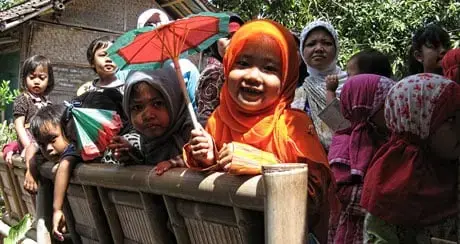Asia-Pacific Forum on Sustainable Development – Roundtable on SDG 3
Opening Remarks by Lubna Baqni, Deputy Regional Director, UNFPA Asia and the Pacific
We are very happy to be co-hosting with our colleagues in WHO and ESCAP this round table on SDG 3 – “Ensure healthy lives and promote well-being for all at all ages.”
We would like to thank most sincerely all the members of the panel for agreeing to share their expertise and country experiences with us – on key topics - the achievements and challenges, and the opportunities for accelerating progress.
Even though this round table has to do with the specific goal on health, it is important to remember that we should all be working to further the 2030 Agenda on Sustainable Development as a whole.
One of the reasons why the SDGs are so special and important is that they represent a holistic agenda that brings together all aspects of life – the economic, the social, the environmental, and also how we are governed and how we live together as societies.
Good health – both physical and mental – is one piece of the complicated puzzle that makes up that life of dignity that the 2030 Agenda aspires to for all people.
And together, the 17 goals represent a vision of development not just as a pursuit of material wealth but of a world founded on solidarity and caring and the recognition, as stated in the Universal Declaration of Human Rights that, ‘All human beings are born free and equal in dignity and rights.’
So in our discussions today in this round table it’s important to also consider about how human health connects to the agenda as a whole – to poverty eradication, to universal access to quality education, to gender equality, to healthier environments, to more peaceful and inclusive societies – and vice versa.
We also need to pay special attention to the principle put forward in the 2030 agenda of ‘leaving no one behind,’ and to that end, ‘putting the farthest behind first.’ This means first recognizing those that we have excluded – the poor, the indigenous peoples, the ethnic and religious minorities, the disabled, the migrants, the lower caste people, the LGBTI people, sex workers, those living with HIV – and making a special effort to bring them into the circle of universal rights.
This seems a daunting task. Indeed, the SDGs are a very ambitious agenda. And the 13 health targets alone represent a huge challenge. But it is important to remember that we have already come a very long way in our pursuit of the Millennium Development Goals.
Hundreds of millions were lifted from poverty during the MDG era. Millions more children gained access to primary education, and in East and Southern Asia, maternal mortality fell by around two-thirds. Significant progress was also made in the fight against HIV, TB and Malaria, and in a small number of countries, women now make up 30% of national parliamentarians.
Yet there is still a long way to go. Close to 86,000 women still die each year in the Asia Pacific region from causes related to pregnancy and birth. Nine in every ten of these deaths are entirely preventable. Around 81 million women who want to avoid pregnancy lack access to safe and effective family planning methods – even though we know this is key to reducing maternal mortality. So an important part of achieving the SDGs is completing the unfinished business of the MDGs.
Under the SDGs we also aspire to new targets related to emerging health challenges, such as non-communicable diseases, injuries and environmental hazards that we had not addressed under the MDGs.
And in addition to these ‘what’s’ we also have targets related to the ‘how’ – on the means of implementation. Perhaps the most crucial of these is the achievement of universal health coverage.
Universal health coverage – defined as all people getting the care they need, without financial hardship – is a specific target in the SDGs as well as a platform that brings together programmes and actions for sustainable health outcomes.
So we have a lot of work to do, but that’s why we are here. To work together to take on these big challenges.
And we hope that this roundtable and the key recommendations coming out of it will take us one step closer to our common goal.




